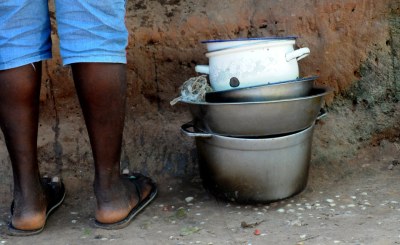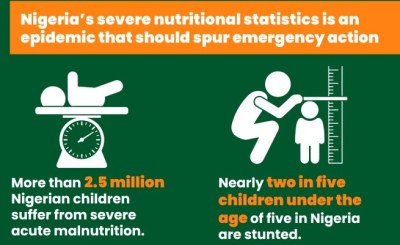-
East Africa: How Covid-19 Measures Have Affected Food Safety in the Region
The Conversation Africa, 1 July 2021
Foodborne diseases are thought to impose a health burden on society comparable to the "big three": malaria, HIV/AIDs and tuberculosis. Read more »
-
Tanzania: Food Vendors Complain of Poor Working Environment
Daily News, 5 April 2021
SMALL scale entrepreneurs in Dar es Salaam have raised concern over the poor infrastructure hampering their operations. The environment under which food vendors operate poses… Read more »
-
South Africa: Good for Hunger, Bad for Health? Spaza Shops and Food Vendors Proliferate Outside Schools
Daily Maverick, 29 March 2021
In March 2020, the Department of Basic Education pulled the plug on school tuck shops to limit the spread of Covid-19. Instead, it has encouraged informal vendors to set up shop… Read more »
-
Nigeria: Health Seeking Behaviours of Food Vendors Influence the Burden of Food-Borne Diseases
Nigeria Health Watch, 1 July 2021
The sun is dressed in her best attire on Tuesday morning, after the heavy rains at night, to welcome resilient traders and businesspersons who are about their duties despite the… Read more »
-
Nigeria: Nigeria, WaterAid Partner to Improve Sanitation Awareness
Premium Times, 2 June 2021
The partnership also involves developing a curriculum in schools for students to learn about basic sanitation. Read more »
-
Nigeria: Health Workers, Food Vendors, Journalists, Others Exempted From Lagos, Abuja Lockdown
Premium Times, 29 March 2020
Health workers, food manufacturers and retailers, as well as journalists, were among those exempted from the movement restriction President Muhammadu Buhari imposed on Lagos, Ogun… Read more »
-
Nigeria: Make It Look Good - How Perception Adjustment for Local Foods Can Impact Malnutrition in Nigeria
Nigeria Health Watch, 12 May 2021
Four-year-old Terwase is not in school yet, so he often goes with his mother to the market where she has a small trinkets shop. Terwase gets hungry during the day, and the hot and… Read more »
-
Nigeria: World Bank Approves $700m for Water Supply, Sanitation Programmes in Nigeria
This Day, 27 May 2021
The World Bank has approved the Nigeria Sustainable Urban and Rural Water Supply, Sanitation, and Hygiene Program (SURWASH). Read more »
-
Nigeria: Ending the Ravages of Cholera
This Day, 25 June 2021
There is need to raise awareness on sanitation and personal hygiene Read more »
Infrastructure Key to Ending Food-Borne Diseases In Africa
Foodborne diseases are thought to impose a health burden on society comparable to the "big three": Malaria, HIV/Aids and Tuberculosis. Common foodborne diseases affect tens of millions of people annually. It includes salmonellosis, which causes stomach upsets, norovirus, which can cause severe vomiting and diarrhoea, and listeriosis, which can cause severe infections of the bloodstream and brain. Children and people with weak immune systems are affected most, write Delia Grace, Erastus Kang'ethe and Florence Mutua for The Conversation.
Unsafe raw food, poor storage conditions, inadequate cooking, poor personal hygiene, and improper handling methods are sources of contamination that give room for food-borne outbreaks.
The World Bank estimates that countries in Africa lose approximately U.S.$110 billion to food-borne diseases, thus impeding socio-economic development by straining healthcare systems and harming national economies, tourism, and trade. These funds are lost through lost productivity and medical expenses, annually, writes Chidindu Mmadu-Okoli for Nigeria Health Watch.





